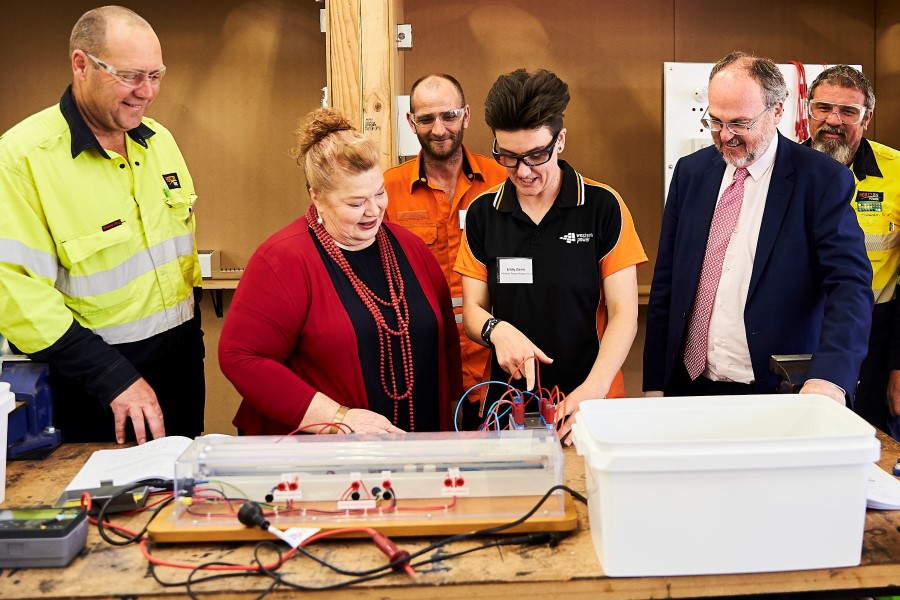With the costs of maintaining long and skinny electricity networks proving uncompetitive against solar and storage systems, WA is looking to retrain its much of its electricity network workforce. The state’s two utilities, Horizon Power and Western Power, are combining with TAFE to roll out the training to 100 workers – who will become electrical fitters in the process.
The training program is an extension to an initial pilot unveiled in June and occurs as standalone power system (SPS) deployment accelerates.
WA is already installing 74 standalone power systems. Regional utility Horizon Power is installing 17 SPS to farmers in the Goldfields-Esperance region, with Western Power a further 57 in the regions in which it is active. The systems are expected to be in place by 2020.
Not only do they deliver power more cheaply than maintaining long power lines to small communities, solar-and-battery microgrids and SPS are also more reliable. While renewables may be presented as being unreliable by critics, the reality is the new technology is superior to power lines strung through the bush on many metrics including on carbon emissions. Additionally, fire risks are reduced by deploying the distributed energy systems, as downed power lines can spark bushfires.
Education Minister Sue Ellery said, in a statement, that the training will “ensure we have a workforce skilled to support the energy transformation.”
After having completed the training, which is being provided by North Metropolitan TAFE, the workers will be equipped with the skills needed to operate, maintain and repair standalone power systems. The systems primarily deploy solar PV arrays coupled with battery storage, and backup diesel generation.
Workers from WA’s Northwest will be able to maintain the Onslow solar farm and battery system as a result of the training, along with the region’s existing transmission network and substations.
“The energy sector is experiencing a rapid transformation worldwide; it’s important we have the appropriate training programs available to upskill our workers and ensure they’re equipped to meet the technological requirements of the future,” added WA Energy Minister Bill Johnston in a statement.
Perth-based energy futurist Ray Wills says that he expects the transition to standalone power systems will see a significant reduction in the Western Power network in the Southwest of WA. He says that as many as 40% of people currently supplied by the Western Power network, around 20% of the network in terms of area could be supplied primarily by offgrid solar and storage.
“Standalone systems can be provided for farms, or microgrids for small towns at the end long dangly wires,” said Wills. “The change at the fringe of grid will be a substantive one.”
Along with the standalone training announcement, the WA government announced today that there continues to be strong activity in the state for battery mineral exploration activity. Under the latest round of its Exploration Incentive Scheme around one third of the 41 projects receiving funding were for battery commodities including nickel, nickel-cobalt, vanadium and lithium exploration.
This content is protected by copyright and may not be reused. If you want to cooperate with us and would like to reuse some of our content, please contact: editors@pv-magazine.com.









“With the costs of maintaining long and skinny electricity networks proving uncompetitive against solar and storage systems, WA is looking to retrain its much of its electricity network workforce. The state’s two utilities, Horizon Power and Western Power, are combining with TAFE to roll out the training to 100 workers – who will become electrical fitters in the process.”
Why Oh Why doesn’t more utilities around the World get with this program to move along energy efficiency. This is one model that shows if these electric utilities want to stay relevant in a distributed micro-grid system environment, one can’t stand on past operations. The utilities need to get into the business of distributed energy generation and energy storage technologies, it’s a lot more than lines and poles anymore.